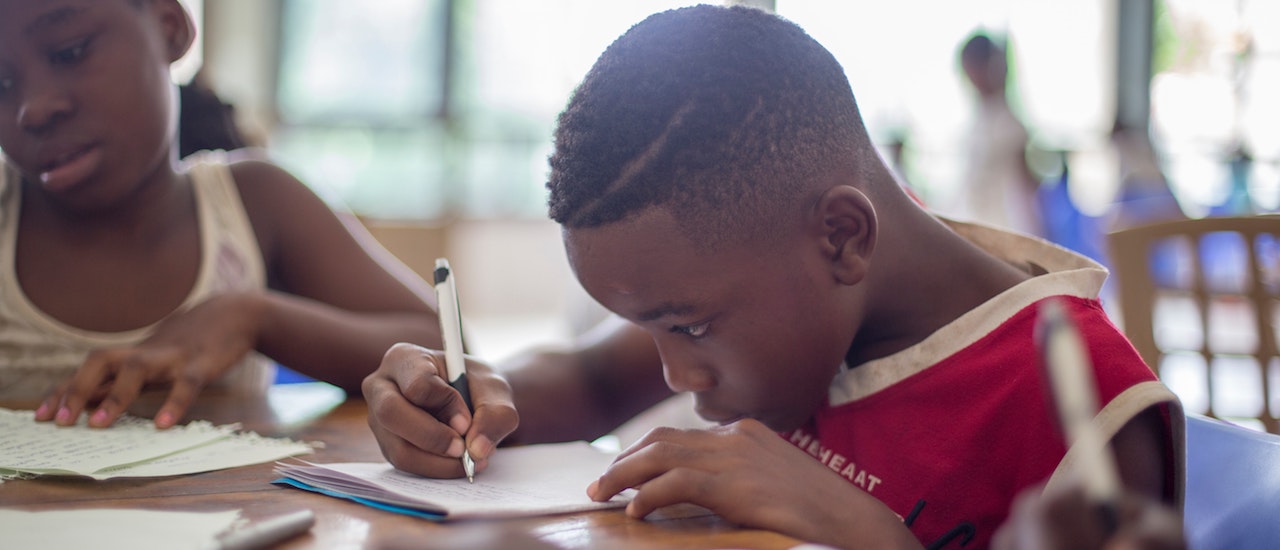When COVID-19 struck Africa, governments imposed temporary or full shutdowns of education systems to contain its spread. At least 53 out of the 54 African countries took measures that canceled or partially closed schools. Kenya, for example, canceled the 2020 academic year in March, before changing its directives six months later to allow schools to reopen.
No Internet, No Schools
Across the Democratic Republic of Congo, Liberia, Nigeria, and South Africa, where governments imposed partial closure, the few students with access to the Internet, mobile devices, and computers continue learning. But for the majority, there is no schooling. Most can’t afford the cost of Internet data, and very few have access to smartphones and computers. They must improvise to learn, thus widening disparities between learners with Internet access and those without. How can Africa close this gap and offer equal learning opportunities to everyone?
As we gear up towards resuming formal education, there is general panic among parents about the implications resulting from the major learning disruptions. Could COVID-19 lead to a lost generation of students?
Solutions for a Safe Return
Fortunately, African decision-makers are shifting their positions on schools as we learn to live with COVID-19. Governments across the continent are desperate for solutions that can enable a safe return to formal education.
It is heartening to see many Internet Society Chapters, members, partners, and the technical Internet community developing innovative solutions to enable a safe return to schools.
In Kenya, where public authorities had suspended the school year, the Lamuka Hub, an initiative started by tech entrepreneur Twahir Hussein Kassim, is supporting teachers in Mtondia Primary, Kilifi County, to develop digital skills to teach online.
Kassim, a member of the Internet Society Kenya Chapter, first set out to build a community network for schools in Kilifi County before COVID-19 struck. Since switching gears, his initiative has equipped 16 teachers and 40 students with the skills they need for remote learning.
Though the shift to digital learning is not effective in all parts of Kenya, Kassim is upbeat that small initiatives like his can help the country’s back-to-school strategy. “I am very optimistic that despite the challenges, we shall make headway,” he says.
In South Africa, to ease remote learning, the South African Broadband Education Networks (SABEN) is providing connectivity to Technical and Vocational Education and Training (TVET) colleges via its Campus Connectivity initiative, which was funded by the National Skills Fund.
“In the last two months, we have connected eight TVET campuses,” says Helga van Wyk, project lead of the TVET Campus Connectivity project at SABEN.
“We aim to connect between 80-100 TVET campuses between now and the end of the year.” SABEN is a nonprofit helping the public TVET sector in South Africa.
Via support from Internet Society Organization Member Teraco, Africa’s largest vendor-neutral data center provider, SABEN can offer colleges direct network access to Africa’s largest Internet Exchange Point (IXP), NAPAfrica. This access enables easy hosting of educational content and online teaching. It also facilitates research.
To enable better use of the technology, Van Wyk says SABEN has proposed a training that lecturers can use to learn about various tools and platforms available to enable better online lesson delivery.
Internet Exchange Points (IXPs) provide faster, more robust, and cheaper Internet connectivity. They play an important role in the development of Africa’s Internet infrastructure. Learn about our work with IXPs!
Image by Santi Vedrí via Unsplash

